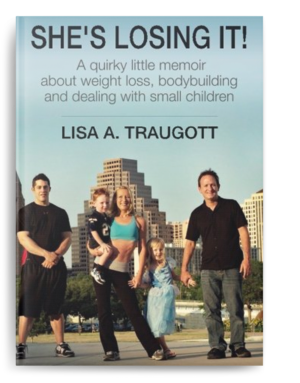#14 – Agent Query Letter Basics
First Agent Meeting
There’s a scene in the mob cult classic movie Goodfellas. Teenager Henry Hill (Ray Liotta’s character) is doing some shady work for the local mafia and gets busted. He’s at the court house facing jail, a pretty scary situation for anyone and his mob friends greet him saying, “Hey! You popped your cherry!”
Rather crude but that’s kind of what it felt like at my first agent meeting the other week at a writers convention hosted by The History Quill. Literary agents and publishers in USA and UK taught classes, did live critiques and had one-on-one meetings. Attending conferences is a pretty common way for writers to get their foot in the door with the bigger agencies and publishing houses. The other path (the one I will be doing next month) is to research agents interested in your genre and submit your query package online.
 Elevator Pitch
Elevator Pitch
An elevator pitch is where you condense your 400+ page, 110,000 word manuscript into two paragraphs, or about 150 words. Yikes! It needs to include your title, word count, genre, a one-sentence hook to entice readers, three comparable books similar to yours on the market right now and a summary of your story. The entire pitch takes about a minute and a half, which is the length of time that you might be in an elevator with some big wig to convince them your book is worth selling.
Anyone could submit their elevator pitch and about ten of us were selected based on a preliminary story summary. We had two weeks to prepare before we did our live pitch in front of the class and got critqued by an agent and a publisher. I practiced giving my pitch at my Toastmasters (public speaking) club, recited it while on the treadmill, and recorded myself on Zoom several times to get ready.
After giving my pitch the agent said, “I would pay to hear you read your story on Audible.” That comment alone made me feel that my two years of work on the book was worth it. Then the agent and publisher gave constructive criticism on the synopsis to make it tighter. When I finish the final edits, I plan to submit to both of them. Fingers crossed!
One-On-One Meeting
Prior to the one-on-one meeting with a New York literary agent, I had to submit a complete agent query package that she would review during the meeting.
What’s An Agent Query Package?
Most major publishers in the United States won’t even look at your manuscript unless you have an agent. Publishers basically view agents as the gate keepers who have vetted your work and believe it is good enough to make money.
- The agent query package starts with a short, half page, single-spaced cover letter that should be personalized according to who you are sending it to, specifically asking them to represent you.
- Next comes the synopsis. You turn your entire book into a one page summary. If you have a complex epic adventure plot, like mine, this means you only really mention the main plot (no subplots) to fit in the one page limit. ***Every writer friend I know HATES this part!!!***
- The final part is a sample of your writing, typically the first 1-3 chapters of your book, or about 25 pages. Each agency has different requirements, so you have to check.
I discovered I made some rookie mistakes. The first one was including a mock-up of a book cover in my cover letter. My other books are self-published and I never even bothered to seek an agent, so I was used to doing everything. In traditional publishing, the publisher decides what your book cover will look like and they also can change the title of your book. The agent (and author) has nothing to do with it.
She suggested I work on was streamlining the synopsis. Remember I told you my novel was an epic adventure? Apparently having too many character names makes it confusing. Synopsis writing is its own beast, and I’ll have to work on it. I’ve been reading SparkNotes and Cliff Notes summaries of classics to get a sense of what to leave in and what to leave out, but honestly, it’s tricky.
Another thing? She said to reduce my word count. She’s looking for historical fictions to be 80,000 – 100,000 words tops, and mine was 110,000. That might be an USA vs. UK difference though, because the agents from the UK at the convention said they would cap the word count at 120,000.
The final note was on the writing. She liked it but suggested I get rid of the prologue and start with chapter 1. People used to write prologues all the time to set up the story, but today’s readers are in a rush. A lot of readers will automatically skip the prologue and start at chapter 1. Who knew? Well, I guess I do now 😉
The positive thing is she thinks my hook is good and there’s always a niche market for witch stories. After I make some tweaks and cut my word count she said I could submit my new package.
Now in a perfect Cinderella story she would have said, “Lisa, your story is perfect as it is! Let me represent you! There will be a bidding war and your book will become a Netflix movie!”, but my fairy tale avatar is more like the Little Engine That Could (‘I think I can, I think I can, I think I can…’) so I have to get back to work if I want to get over that proverbial mountain.
Next steps
For the rest of the month I’ll be editing the word count and incorporating the feedback from the convention. My goal is to start submitting agent queries in blocks of four or five agents at a time, until I either get a contract or 40 rejections. If the latter happens, I’ll self-publish, because it’s a really fun story and I think readers will enjoy it. We’ll see. But whatever happens, preparing a query package was a worthwhile learning experience because it really focused my attention on the business side.
Have you submitted to agents before? What was your experience?
Lisa 😉
Here’s my memoir:

Copyright (c) Lisa Traugott 2023. All rights reserved.